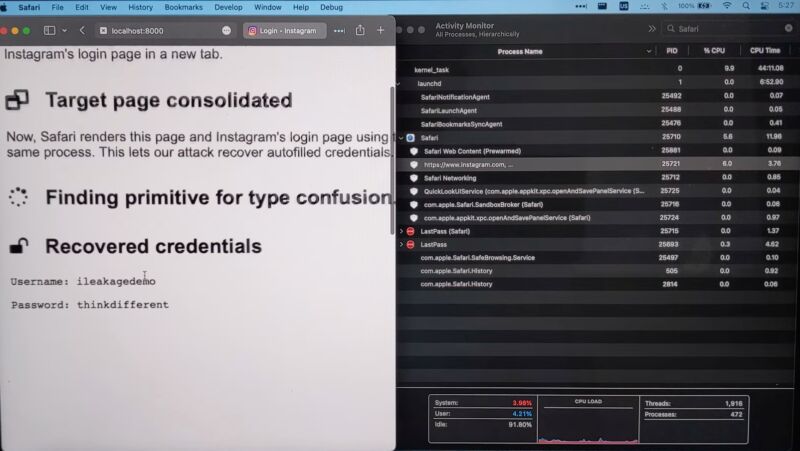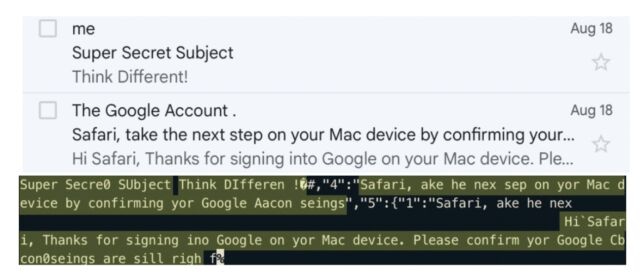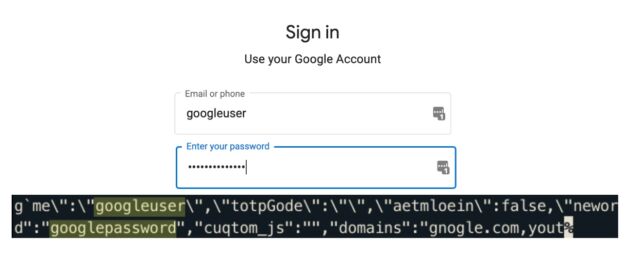
reader comments
3 with
Researchers have devised an attack that forces Apple’s Safari browser to divulge passwords, Gmail message content, and other secrets by exploiting a side channel vulnerability in the A- and M-series CPUs running modern iOS and macOS devices.
iLeakage, as the academic researchers have named the attack, is practical and requires minimal resources to carry out. It does, however, require extensive reverse-engineering of Apple hardware and significant expertise in exploiting a class of vulnerability known as a side channel, which leaks secrets based on clues left in electromagnetic emanations, data caches, or other manifestations of a targeted system. The side channel in this case is speculative execution, a performance enhancement feature found in modern CPUs that has formed the basis of a wide corpus of attacks in recent years. The nearly endless stream of exploit variants has left chip makers—primarily Intel and, to a lesser extent, AMD—scrambling to devise mitigations.
Exploiting WebKit on Apple silicon
The researchers implement iLeakage as a website. When visited by a vulnerable macOS or iOS device, the website uses JavaScript to surreptitiously open a separate website of the attacker’s choice and recover site content rendered in a pop-up window. The researchers have successfully leveraged iLeakage to recover YouTube viewing history, the content of a Gmail inbox—when a target is logged in—and a password as it’s being autofilled by a credential manager. Once visited, the iLeakage site requires about five minutes to profile the target machine and, on average, roughly another 30 seconds to extract a 512-bit secret, such as a 64-character string.

“We show how an attacker can induce Safari to render an arbitrary webpage, subsequently recovering sensitive information present within it using speculative execution,” the researchers wrote on an informational website. “In particular, we demonstrate how Safari allows a malicious webpage to recover secrets from popular high-value targets, such as Gmail inbox content. Finally, we demonstrate the recovery of passwords, in case these are autofilled by credential managers.”

While iLeakage works against Macs only when running Safari, iPhones and iPads can be attacked when running any browser because they’re all based on Apple’s WebKit browser engine. An Apple representative said iLeakage advances the company’s understanding and that the company is aware of the vulnerability and plans to address it in an upcoming software release. There is no CVE designation to track the vulnerability.
Unique WebKit attributes are one crucial ingredient in the attack. The design of A-series and M-series silicon—the first generation of Apple-designed CPUs for iOS and macOS devices respectively—is the other. Both chips contain defenses meant to protect against speculative execution attacks. Weaknesses in the way those protections are implemented ultimately allowed iLeakage to prevail over them.





